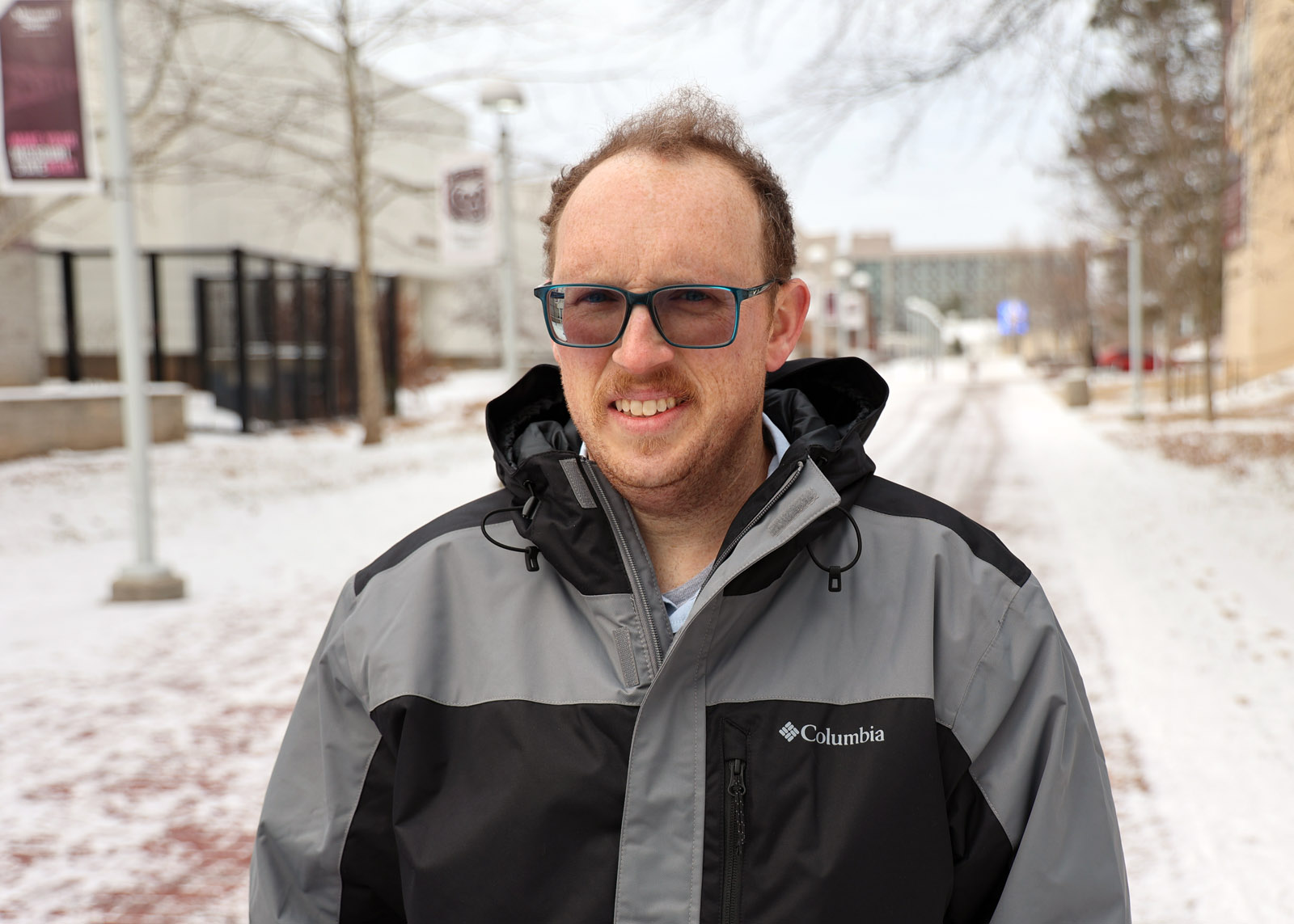OPINION|
For several months now, Brandon Landers, a gay man, has been allowed to donate blood at the American Red Cross. He's told he can't at the Community Blood Center of the Ozarks.
Landers, 34, called me a few months ago and we decided to wait before I wrote about his situation. The Food and Drug Administration changed its national blood donation guidelines in May 2023.
So Landers came to the Hauxeda on Monday and tried again. I wanted to hear the telephone exchanges — especially the alleged denial by the Community Blood Center — firsthand.
Landers told each agency that he needed to double-check his eligibility to donate blood, seeing as how he is a gay man. He married his partner in June 2020 and, he tells me, they are in a monogamous relationship.
Based on that, according to the FDA, he should be allowed to donate blood.
In short, the American Red Cross said he could and the Community Blood Center of the Ozarks said he couldn't — which is exactly what he told me has been happening for months.
I should add that the person on the phone at the Community Blood Center of the Ozarks also said he should be able to donate starting in April.
Told it was because procedures and computer software needed revisions

The person on the phone from Community Blood Center told Landers the reason the center can't accept blood from a gay man in a monogamous relationship for at least three months is because the organization needs to change its standard operating procedures.
Landers says he has been told several times by the Community Blood Center that he can't donate for one of two reasons — one was that the center had to first change its standing operating procedures and the other was that the center first needed to update its computer system.
“I am not sure if they are being disingenuous or if they are just dragging their feet,” Landers tells me. “It does not sound truthful to me anymore.”
Not a ‘flip of the switch'
Landers is starting to wonder, he says, if the center is discriminating against gay men who want to give blood.
Absolutely not, says Anthony Roberts, the center's executive director.
“When the FDA implements new guidelines, it's not a situation where it's a flip of the switch,” Roberts tells me.
It's easier for the American Red Cross, a national organization, to more quickly react to changes in FDA guidelines than for a smaller blood center like the Community Blood Center of the Ozarks, Roberts says. The American Red Cross has more staff members to work on these matters, he says.
The Community Blood Center of the Ozarks is the exclusive provider of blood and blood products in southwest Missouri and northwest Arkansas. For the most part, blood donated to the center stays in this area.
Blood donated at the American Red Cross in the Ozarks can be used elsewhere.
CBCO opened in 1996 when it split from American Red Cross
The division between the blood agencies goes back to when Community Blood Center of the Ozarks opened in 1996 in response to the national American Red Cross taking greater control of the Springfield operation. The American Red Cross closed lab and computer operations in Springfield and moved them to St. Louis.
In addition, the American Red Cross was raising its prices for blood and blood products and its customers, the major hospitals, didn't like it.
The American Red Cross ended up suing the upstart Community Blood Center of the Ozarks and a federal judge wrote that “neither party stands with the angels.”
According to a Feb. 22, 1996 story in the Springfield News-Leader, the judge wrote:
“If it were within the Court's power to do so, each party would be stood in the corner then sent to bed without supper. Such is fit treatment for rapacious children and such is fit treatment for the self-indulgent behavior of both parties to this suit.”
Back to Roberts, executive director of the Community Blood Center of the Ozarks.
He confirmed that he expects the center to be ready by April 1 to accept blood donations from gay men who have been monogamous for three months.
I told Roberts it seemed counter-intuitive to me that a large national organization like the American Red Cross with — I'm assuming, a lot of bureaucracy — would be able to more quickly respond to changing FDA guidelines than a regional blood center with a governing board of 20.
“We are nimble,” Roberts insists. But the FDA guideline change occurred while the center was in the middle of a major upgrade to its computer system.
“Being in the middle of that did not allow us to stop and start implementing the FDA guideline changes,” Roberts says. “So we had to get that completed before we were able to start on the individual donor assessment process, standard operating procedure.”
History of FDA blood donation guidelines
In 2015, the FDA dropped its lifetime ban on blood donations from men who have sex with men. The concern was over possible blood contamination from the human immunodeficiency virus, which attacks the body's immune system. If untreated, HIV can lead to AIDS.
The lifetime ban was replaced by a requirement of one year of abstinence before donating.
In 2020, the abstinence period was shortened to three months after donations plummeted during the COVID-19 pandemic.
The most recent guideline, made final in May of 2023, allows gay men having sex to donate, as long as they have been in a monogamous relationship for three months. The same guidelines apply to heterosexual couples.
All blood donations are later checked for disease markers, including HIV, hepatitis and West Nile.
This is Pokin Around column No. 159.

